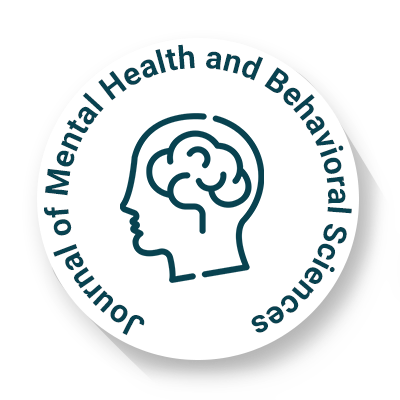
Journal of Mental Health and Behavioral Sciences
OPEN ACCESS

OPEN ACCESS
Alzheimer's disease is a progressive neurodegenerative disorder and the most prevalent cause of dementia. It is characterized by a gradual decline in cognitive functions, notably memory, language, and problem-solving abilities, which significantly interfere with daily life.
The pathophysiology of Alzheimer's disease involves the accumulation of amyloid-beta plaques and neurofibrillary tangles composed of hyperphosphorylated tau protein within the cerebral cortex. These aberrant protein aggregates disrupt neuronal communication and lead to neuronal death, resulting in brain atrophy.
Clinically, Alzheimer's disease manifests in stages. Early symptoms often include difficulty remembering recent events. As the disease progresses, individuals may experience disorientation, mood swings, language difficulties, and behavioral changes. In advanced stages, patients become increasingly dependent on caregivers due to severe cognitive and functional impairments.
The etiology of Alzheimer's disease is multifactorial. Genetic predisposition plays a significant role, with the apolipoprotein E (APOE) ?4 allele identified as a major genetic risk factor. Environmental factors, such as a history of head trauma, clinical depression, and cardiovascular conditions like hypertension, also contribute to the disease's onset and progression.
Diagnosis of Alzheimer's disease is primarily clinical, involving comprehensive history-taking and cognitive assessments to evaluate the extent of memory impairment and other cognitive deficits. Neuroimaging techniques, including magnetic resonance imaging (MRI) and positron emission tomography (PET), assist in ruling out other causes of dementia and may reveal characteristic patterns of brain atrophy. Definitive diagnosis, however, requires post-mortem histopathological examination.
Currently, there is no cure for Alzheimer's disease. Pharmacological treatments, such as acetylcholinesterase inhibitors and NMDA receptor antagonists, may offer symptomatic relief and temporarily slow cognitive decline. Non-pharmacological interventions, including cognitive stimulation and physical exercise, are also advocated to support cognitive function and overall well-being.
The global impact of Alzheimer's disease is profound, with approximately 50 million individuals affected worldwide as of 2020. The disease imposes substantial social and economic burdens, necessitating extensive caregiving and healthcare resources. Ongoing research endeavors aim to elucidate the underlying mechanisms of Alzheimer's disease and develop effective therapeutic strategies to mitigate its devastating effects.